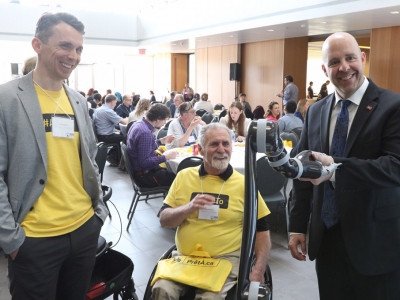By Karen Kelly
During a time of worldwide calls for greater equity, diversity and inclusion in society—and in the midst of a global pandemic—Carleton’s second annual Inclusion Week played a significant role in hosting urgent conversations about advancing equity, diversity and inclusion in our community.
The week of virtual events, including panelists from across the country and around the world, ran from October 19 to 23, and was hosted by the Department of Equity and Inclusive Communities (EIC). It kicked off with an interview with Innovation, Science and Industry Minister, Navdeep Bains, followed by a workshop in Inclusive Leadership, a Neuroscience of Inclusion panel, an Accessibility in Times of Transition event, and an African Diaspora in the Academy panel.
Despite the challenges presented by COVID-19, the total audience for the week exceeded 400, staff, students and external community members, more than double that of the inaugural event last year.
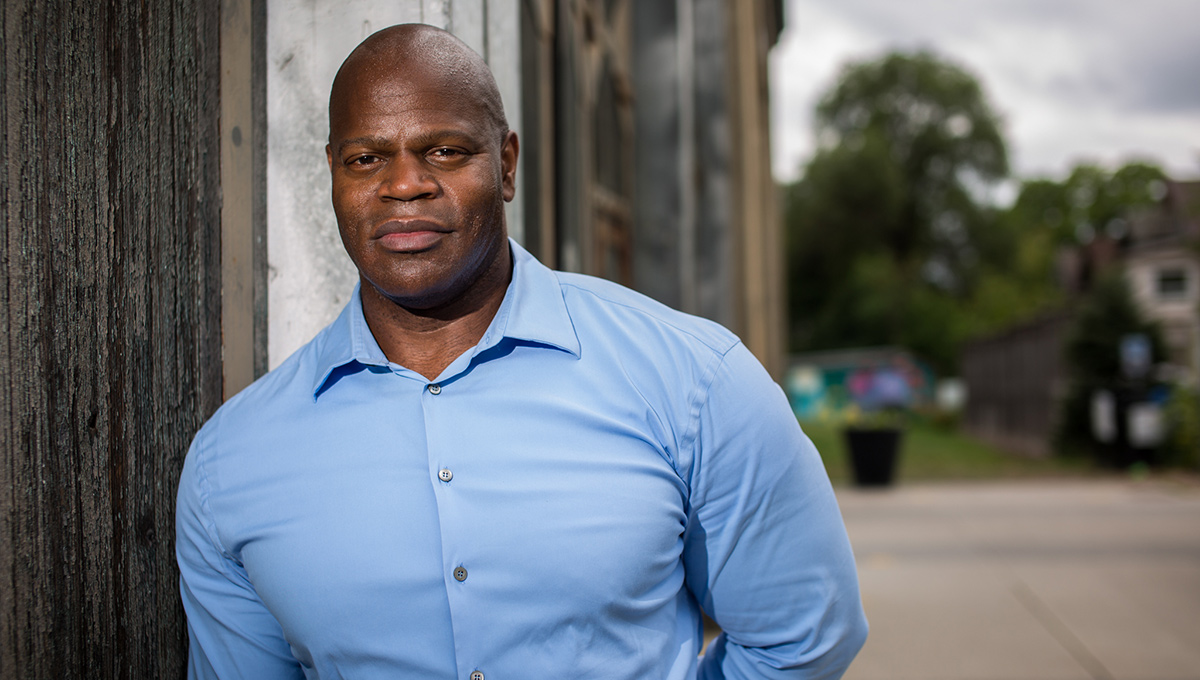
Assistant Vice-President and University Advisor for EIC Michael F. Charles
“The stature of this event grew substantially this year,” observed Michael Charles, assistant vice-president and university advisor in EIC.
“Members of Carleton’s senior leadership, the Board of Governors, and external leaders from coast to coast—including executives from SSHRC, a federal research funding agency—attended together with community advocates. The feedback has been enthusiastic and it has been a privilege to have been a part of this level of engagement.”
The event series furthers one of the priorities in Carleton’s recently released Strategic Integrated Plan, which outlines a commitment for all of us at Carleton to work together in ways that address issues of Equity, Diversity and Inclusion (EDI). The implementation of this vision is set out in the draft Institutional EDI Action Plan – the subject of broad cross-campus consultations this Fall.
“Carleton is a diverse community that strives for inclusion, but we are part of the broader world and in no way immune from issues and challenges of discrimination and inequity,” President Benoit-Antoine Bacon wrote in a letter about Inclusion Week. “We have made progress this year, but there is no question that much remains to be done. It is our shared responsibility to always seek to do better and to be part of solutions. The burden of change is on each of us.”

Challenging Perspectives
Inclusion Week included discussions from a number of perspectives, beginning with Charles’ recorded interview with Bains. The keynote event explored how educational institutions and government can work together to spark transformational change.
“There needs to be an understanding that EDI is not only the right thing to do, but it makes society better,” Bains said.
“EDI gives better outcomes, drives innovation, productivity and better returns.”
He also stressed that this work should not be seen as simply transactional, but as part of the ongoing revitalization of Canadian culture. Bains highlighted both the Women Entrepreneurship Strategy and the Black Entrepreneurship Program as examples of steps the government has taken to address opportunity gaps. You can watch the interview here.
Another highlight of Inclusion Week was the pilot Inclusive Leadership Workshop which was held on two afternoons. It was described as a unique, evidence-based, interdisciplinary educational workshop emphasizing real-world problem-solving. Participants were introduced to the LUCCC© model of Inclusive Leadership as a foundational framework for the development of more sophisticated cross-cultural interactions and outcomes. The workshop will become a core element in Carleton’s developing approach to identifying and fostering talent.
“The generational challenges that we are facing—whether it involves climate, human migration, pandemics or inequality—can only be solved across culture, rather than within culture,” said Charles as he opened the dialogue with online participants.
“We have to be able to expand our ability to generate ideas and innovate through conceptual borders if we’re going to be able to come up with solutions to these complex problems together in the 21st century.”
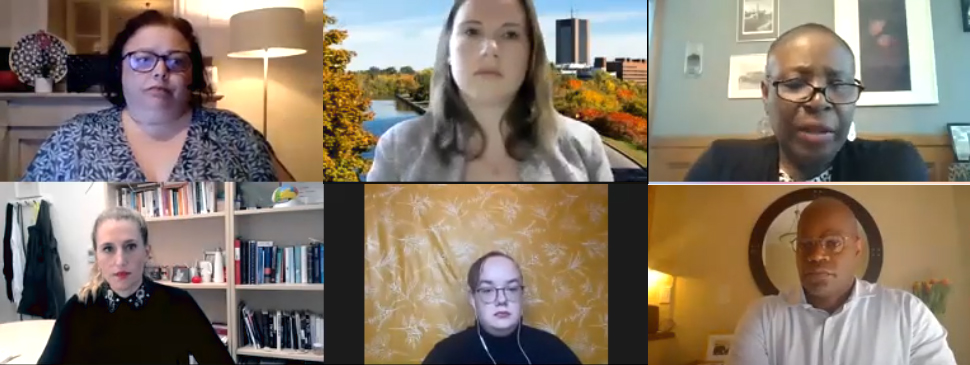
Combatting Feelings of Exclusion
Participant feedback about the Inclusive Leadership Workshop confirmed the need for this type of offering at Carleton: 95 per cent of participants viewed the workshop favorably, with 87 per cent indicating an overall rating of “very satisfied.” Notably, 97 per cent would recommend this educational opportunity to other university colleagues.
Kim Hellemans, chair of the Department of Neuroscience, hosted the event, which explored cognitive diversity as well as diversity of identity and experience. The online discussion focused on the need for, and implications of, enhanced inclusivity in teaching and learning.
“Cognitive diversity refers to different learners with different approaches who may feel different in a learning space,” explained Hellemans.
“That feeling of exclusion can impact how someone in one of our classroom spaces may be able to learn.”
Additionally, those impacted by racism, homophobia, misogyny and other forms of bigotry may experience a kind of trauma that has also been shown to have negative effects on cognition and learning. “The classroom can either heighten these impairments or serve as an antidote; so long as it is understood that pedagogical and curricular practices are not neutral.”
Hellemans was joined on the call by master’s student Mathew Kent, who described their experience of exclusion, as well as their research findings in this area. The panel included Sonia Guerriero, who is with UNESCO based in Paris, as well as Yvette Cozier, who is a professor at the Boston University School of Public Health. You can watch this panel discussion on Carleton’s YouTube channel.
Inclusion Week also included a panel on accessibility, led by Cathy Malcolm Edwards, who is leading the implementation of Carleton’s Coordinated Accessibility Strategy. The strategy was created to “serve as a framework to guide Carleton’s ongoing commitment towards a campus that is accessible for all students, employees, and visitors. The strategy is intended to not only coordinate the many accessibility services, programs, and initiatives that already exist, but also continue to inspire a strong campus culture of accessibility and inclusion.”
Edwards was joined on the panel by Tara Connolly, assistant director of research and development at READ (Research Education Accessibility Design); Quayce Thomas, founder of Timsle.com; Somei Tam, the senior disability advisor at the Paul Menton Centre (PMC) for Students with Disabilities; Rebecca Andre, a fourth-year student in Applied Linguistics and Discourse Studies; and Beth A. Robertson, who holds a PhD from Carleton University. You can watch this panel discussion here.
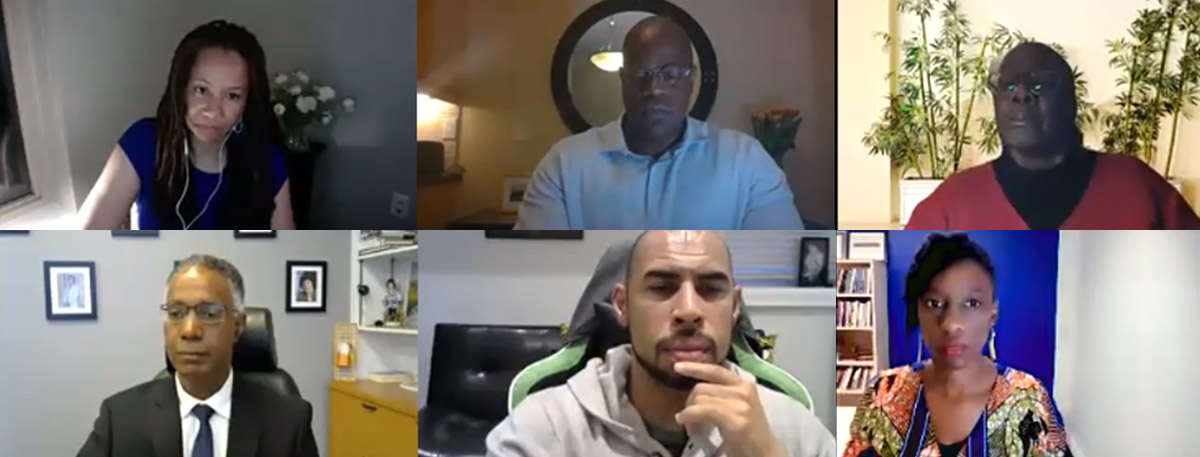
Black Scholars Lead the Way
This event featured Black academic leaders from across the country, who offered perspectives on their career and research inspirations and reflected upon the overdue changes needed within universities to improve representation and inclusion.
“In the context of under-representation, these black scholars are the ones who are constantly called upon to do the organizing, the advocacy and the research related to advancing anti-racism and EDI in the academy,” said Charles. Following western scientific methods, they are also asked to detach themselves and their experience from the analyses.
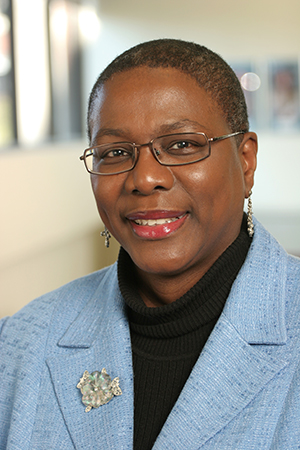
Prof. Joy Mighty
“I thought this panel presented a great opportunity to do something different – to turn the spotlight around on these folks and explore how their autobiographies might serve as investigative tools. I wanted to see how lived experience, as much as scientific method, could reveal sources of innovation in research, teaching and leadership. I also wanted to understand the kinds of additional insights into barriers to success for Black faculty that might be learned from personal narrative rather than from data alone.”
Charles posed these questions to a panel that included Carleton Professors Joy Mighty and Daniel McNeil; Brock University President Gervan Fearon; Charmaine Nelson of the Nova Scotia College of Art and Design University; and Janelle Joseph of the University of Toronto.
“I always knew that I wanted to be an academic, but it was my experience as an immigrant black woman in Canada that informed my choice of research subject as a PhD student in business,” said Joy Mighty, who went on to study diversity management in the workplace.
“This choice of research subject disrupted the received canon of knowledge disseminated and researched in business schools at the time. It was either missing from textbooks or was marginal or peripheral at best—relegated to footnotes if referenced at all.”
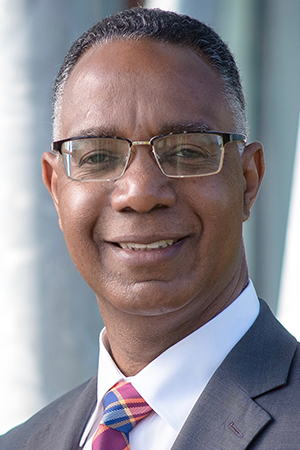
Brock University President Gervan Fearon
Fearon reflected on being the first black Canadian president of a Canadian university and his feeling of responsibility to help diversify academia.
“The question is: ‘How do I become the first of many?’ I think it’s important that individuals can see themselves in institutions and in leadership positions and that we influence and create incentives for others to aspire to achieve in their own sphere. I consider all of us on this panel to be important symbols to the community, but also to Canada and the incredible possibility Canada holds, for its citizens, but as a global level as well.”
Similarly, Prof. Charmaine Nelson of the Nova Scotia College of Art and Design University described her experience as the only black professor of Art History in any specialization in a tenure or tenure track position in Canada.
Charles described the event as “an extraordinary conversation.” You can watch the discussion about the African Diaspora in the Academy on Carleton’s YouTube channel.
Due to the COVID-19 pandemic, the event series was presented virtually. And while people missed the opportunity to gather, the online format enabled the organizers to achieve a greater reach with their messaging. They were seen by more than 36,000 accounts on Twitter and 136,000 on Facebook. The format also permitted the participation of experts from far and wide, ambitions too costly to mount in person.
Many of these valuable discussions are now available on EIC’s events webpage, providing a permanent record and valuable resources as Carleton continues to engage and amplify these important voices.
Wednesday, October 28, 2020 in Accessibility, African Studies, Equity Services, Events, Neuroscience
Share: Twitter, Facebook


